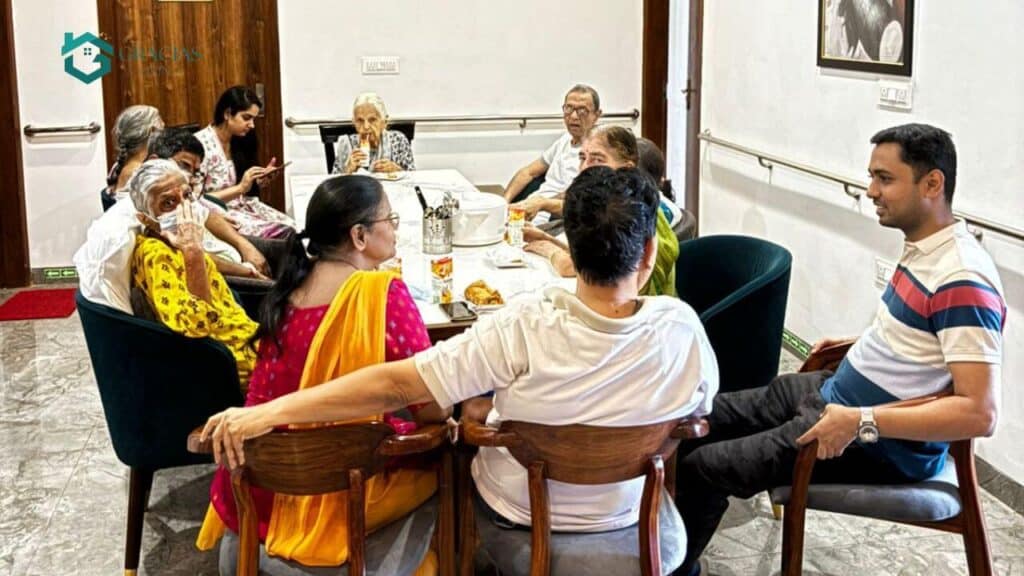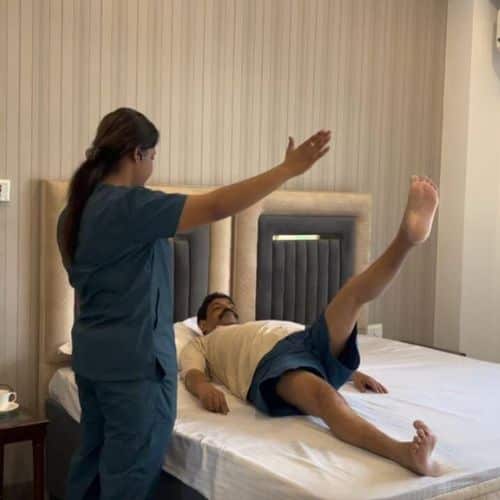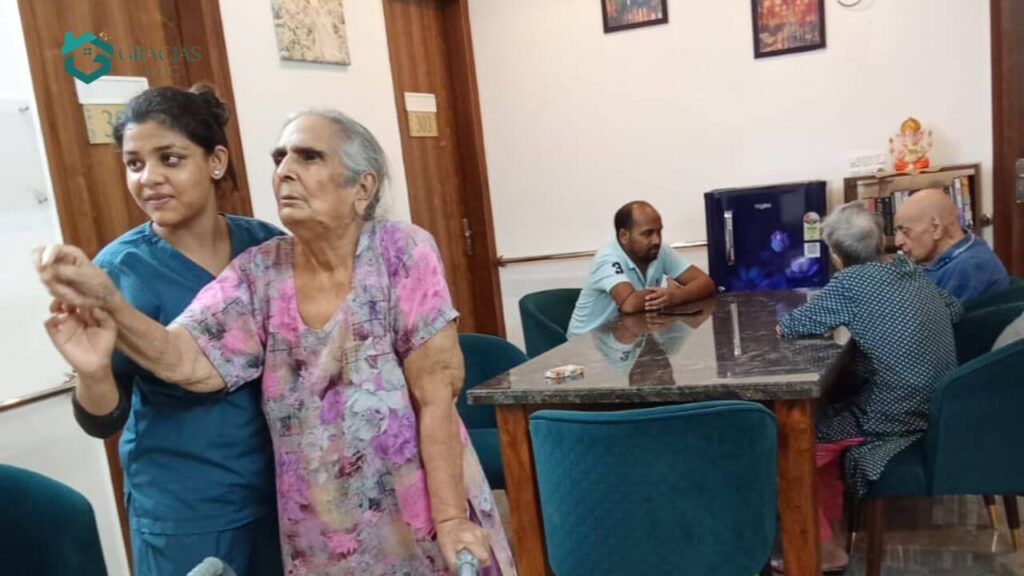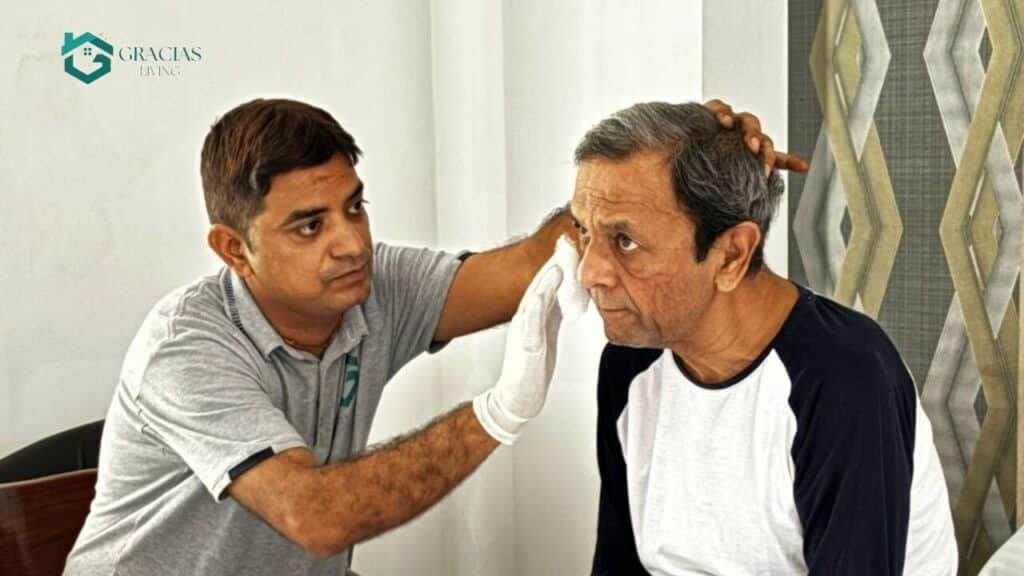Quick Summary of the article:
- Lewy Body Dementia (LBD) is caused by abnormal protein deposits in the brain, linked to Parkinson’s disease.
- LBD is a significant issue in India, primarily affecting older adults.
- Symptoms include fluctuating attention, visual hallucinations, and motor issues similar to Parkinson’s disease.
- LBD can impact the autonomic nervous system, mood, and behavior.
- Treatment aims to manage symptoms through medications, therapies, and lifestyle changes.
Lewy Body Dementia is caused by abnormal protein deposits in the brain known as Lewy bodies. These protein deposits are also associated with Parkinson’s disease.
Lewy bodies are primarily composed of a protein called alpha-synuclein, which disrupts the normal functioning of brain cells.
While exact numbers for India are not well-documented, dementia, including LBD, is increasingly recognized as a significant health issue.

It’s estimated that around 4.1 million people in India are affected by dementia, and LBD is among the common types.
Similar to global trends, LBD primarily affects older adults, particularly those over 60. There is no significant gender disparity noted in the prevalence of LBD in India.
| Aspect | Details |
| General Prevalence | Dementia, including LBD, is increasingly recognized in India. Approximately 4.1 million people are affected by dementia, with LBD being a common type. |
| Age Factor | LBD primarily affects older adults, particularly those over the age of 60. |
| Gender | No significant gender disparity is noted in the prevalence of LBD in India. |
Lew Body Dementia’s Effects on the Brain
Lewy body dementia (LBD) is associated with abnormal protein deposits in the brain called Lewy bodies, which are also linked to Parkinson’s disease.
1. Lewy Bodies:
- Abnormal Protein Deposits: Lewy bodies interfere with the brain’s ability to communicate between neurons. This disruption affects various brain functions, leading to the symptoms of LBD.
- Location in the Brain: Lewy bodies are found in different parts of the brain, including areas involved in thinking, movement, and visual perception.
2. Cognitive and Motor Symptoms:
- Fluctuations in Attention and Alertness: People with LBD often experience unpredictable changes in their ability to concentrate and remain alert. They might be fully aware and responsive at one moment and then appear confused or drowsy the next.
- Visual Hallucinations: These are one of the hallmark symptoms of LBD. Individuals may see things that aren’t there, such as shapes, people, or animals. These hallucinations can be detailed and convincing.
- Motor Symptoms: LBD shares some symptoms with Parkinson’s disease, including:
- Tremors: Involuntary shaking, usually starting in the hands.
- Rigidity: Stiffness of muscles.
- Bradykinesia: Slowness of movement.
- Postural Instability: Problems with balance and coordination, leading to a higher risk of falls.
3. Sleep Disorders:
- REM Sleep Behavior Disorder (RBD): This is a specific type of sleep disorder common in LBD. Normally, during the REM (Rapid Eye Movement) stage of sleep, the body is temporarily paralyzed to prevent acting out dreams. However, in people with LBD, this paralysis does not occur, leading them to physically act out their dreams, which can sometimes be violent.
- Insomnia and Excessive Daytime Sleepiness: People with LBD might also have trouble falling asleep, staying asleep, or feeling excessively sleepy during the day.
Additional Symptoms and Considerations:
- Autonomic Nervous System Dysfunction: LBD can affect the autonomic nervous system, leading to problems with blood pressure regulation, temperature control, and bowel and bladder function.
- Mood and Behavior Changes: Depression, anxiety, and apathy are common. Some individuals may also exhibit aggression or paranoia.
- Memory Problems: While memory issues in LBD might not be as pronounced as in Alzheimer’s disease initially, they can still occur and worsen over time.

Diagnosis and Management of Lewy Body Dementia:
Diagnosing LBD can be challenging due to its overlap with Alzheimer’s disease and Parkinson’s disease.
A thorough clinical evaluation, including medical history, neurological exams, and imaging tests, is necessary for an accurate diagnosis.
Management of Lewy Body Dementia
- Medications: Certain medications can help manage symptoms, such as cholinesterase inhibitors for cognitive symptoms and medications for Parkinson ‘s-like symptoms. However, some drugs can worsen symptoms, so careful management by a healthcare professional is crucial.
- Therapies: Physical therapy, occupational therapy, and speech therapy can help maintain mobility and function.
- Lifestyle Adjustments: Ensuring a safe living environment, managing sleep disorders, and providing support for daily activities are essential for improving the quality of life for individuals with LBD.
Understanding Lewy Body Dementia’s complexity highlights the importance of specialized care and support for those affected by this condition. Research and Future Directions
- Ongoing Research: Scientists are actively researching the underlying causes of LBD to find effective prevention strategies and treatments. This includes studying genetic factors, environmental influences, and lifestyle impacts.
- Clinical Trials: Participation in clinical trials can contribute to advancing our understanding of LBD and developing new interventions.
Prevention of Lewy Body Dementia
Currently, there is no known way to prevent Lewy Body Dementia entirely.
However, certain lifestyle changes and preventive measures can potentially reduce the risk of developing LBD and other forms of dementia:
1. Maintain Brain Health:
- Mental Stimulation: Engage in activities that challenge the brain, such as puzzles, reading, learning new skills, and playing musical instruments.
- Social Interaction: Stay socially active to help maintain cognitive function.
2. Physical Health:
- Regular Exercise: Physical activity improves blood flow to the brain and can help reduce the risk of cognitive decline.
- Healthy Diet: A balanced diet rich in fruits, vegetables, whole grains, lean proteins, and healthy fats (like the Mediterranean diet) supports overall brain health.
- Adequate Sleep: Ensure consistent, quality sleep, as poor sleep has been linked to an increased risk of dementia.

3. Manage Cardiovascular Health:
- Blood Pressure: Maintain healthy blood pressure levels.
- Cholesterol Levels: Keep cholesterol in check through diet, exercise, and medication if necessary.
- Diabetes Management: Properly manage diabetes to prevent vascular damage that can contribute to cognitive decline.
4. Avoid Head Trauma:
- Safety Measures: Use seat belts, wear helmets, and take precautions to prevent falls and head injuries.
5. Avoid Substance Abuse:
- Limit Alcohol Consumption: Excessive alcohol intake can increase the risk of cognitive decline.
- Avoid Smoking: Smoking is a significant risk factor for many health conditions, including dementia.
6. Regular Health Check-ups:
- Routine Monitoring: Regular check-ups with a healthcare provider can help manage risk factors like hypertension, diabetes, and high cholesterol.

Conclusion
Lewy Body Dementia is a complex and challenging condition characterized by abnormal protein deposits in the brain, significantly impacting cognitive and motor functions.
In India, while precise statistics are limited, the growing recognition of dementia, including LBD, underscores its importance as a public health issue.
As our understanding of this condition evolves, addressing both its causes and prevalence is crucial for improving diagnosis, treatment, and support for those affected and their families.





